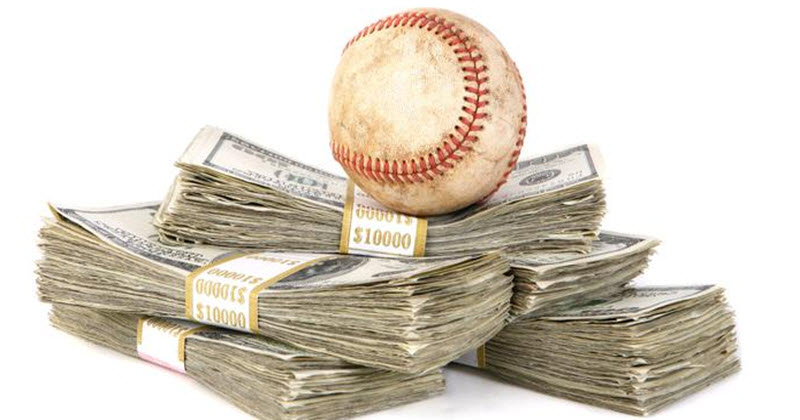Big Money: Are Baseball Players Worth It?

Baseball players have always made a lot of money. That’s not a new thing. Even back in the day, their salaries were significantly higher than ours. But nothing like it is now. So my question is, are they worth it?
Baseball has been around forever. Just to give us an idea of about 100 years ago, the average MLB player’s salary in 1920 was $5,000. In comparison, the average American’s annual salary was roughly $3,200. A sizeable difference, but not that much more. 56% more to be exact. Fast forward 50 years. The average salary in the MLB was just over $29,000, while the average salary in the U.S. was just under $6,200 a year. The difference was larger, but still in the same ballpark if you will. It was actually not uncommon for MLBers to have part-time jobs in the off-season. Baseball players and other professional athletes 50+ years ago were, in the eyes of some, one of us. They would be out at restaurants and bars, on the streets, and at theatres…with normal people. Worth noting, this was before camera phones and social media, where their every move was not being recorded and shared live across the country. This made it easier for them to mingle amongst everyday people, regardless of the money gap.
Up until the Reserve Clause was eliminated in 1975 and players could enter free agency, salaries remained relatively stagnant, and were growing close to the same rate at the average salary of the U.S. Once players were able to enter free agency however, everything changed. Just 5 years after that, in 1980, the average MLB salary had jumped all the way up to almost $144,000. In 1992, that number had reached $1 million. Current day, this number is at over $4 million, and has been since 2016. Remember, this is the average salary, not the highest paid player. Currently the average worker in the U.S. has an annual salary of roughly $52,000. For those keeping track, the average MLBer makes 80 times the amount that the average American makes.
Here are a few fun facts for you to chew on. Mike Trout’s latest contract is worth $430 million. Bryce Harper will make $27.5 million this season. Zack Greinke makes roughly $1 million per start. Are you nauseous yet?
So, are they worth it? This debate has been going on for years. Most arguments you typically hear are they are indeed, not worth it. The most prevalent point being, nobody needs to be paid millions of dollars to play a game. Fair point. They are not curing cancer, keeping our streets safe, preventing us from wars, etc. I get that. They are playing a game. A game many of us played when we were younger. A game many people allege that they would play for free.
I am here to tell you, they are worth it. And here is why – Because they can. Many fans (understandably so) think it’s too expensive to go to a game, and they are right. Tickets, fees, parking, memorabilia, over-priced food, $11 beers, all of it. Your typical family of 4 will spend at least $200 on a trip to a game. Is that too high? Yes. But, clearly enough people are at least somewhat ok with paying that price. And if there are enough people willing to shell out that money, the players will continue to make that much money. Simple supply & demand. If enough people stopped going (or watching, as TV contracts pay the salaries as well), revenues would do down, and as a result, the owners would not be able to pay those contracts. But people keep watching, despite their complaints. Salaries have continued to rise for the history of sports, and tough to imagine that changing anytime soon.
As for the people who claim that would play the game for free. Bullshit. If you had the skills these professional athletes did, and your peers were making millions of dollars, you would not agree to play for free. Why would you? But, since you do not have those skills, you can continue to play softball with your buddies, which is fine. I do too. But that’s your opportunity to play for free.
Like this article? Share it on Twitter or Facebook. Like us? Follow us on Twitter (@big3sportsblog1) or like our Facebook page (@big3sportsblog). Not a fan? Tell us why!
